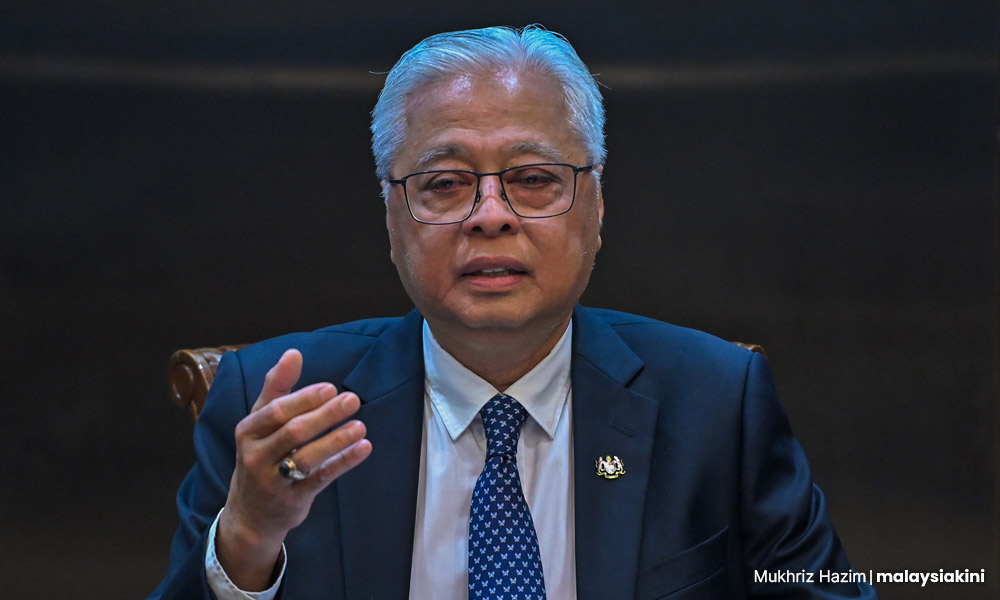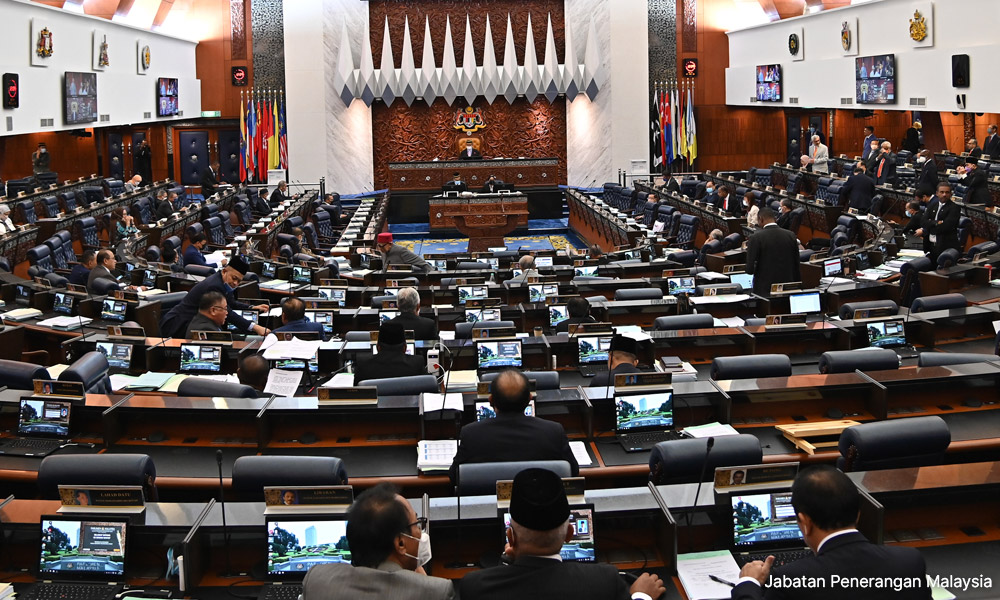With many political observers predicting that no single party or coalition has the might to secure a strong majority in the 15th general election (GE15) on Nov 19, the return of a government formed by two or more coalitions and parties is on the cards.
The three main coalitions – BN, Perikatan Nasional (PN) and Pakatan Harapan – are each facing a tough battle ahead to wrest control of at least 112 seats in Parliament, the simple majority needed to form a government.
Malaysia’s political landscape has changed tremendously since BN’s defeat in GE14 after ruling the country for 60 years. The subsequent political instability witnessed three prime ministers being sworn into office over a period of four years or so.
BN, however, is confident of a victory in the upcoming polls based on its resounding success in the by-elections involving the Parliamentary constituencies of Cameron Highlands, Tanjung Piai, and Kimanis, and state seats of Slim and Rantau; and state elections in Malacca and Johor.
But, according to political analyst Shamsul Amri Baharuddin, BN’s recent performance is not an indicator that it will win GE15 with a comfortable margin similar to the pre-GE14 era.
“No single party (or coalition) will emerge the dominant winner (in GE15)… this is what many political observers are predicting now. Although BN won several by-elections and two state elections (after GE14), there was no political stability, so it’s not impossible for a multi-coalition/party government to be formed once again,” he told Bernama.
Three- to five-cornered seats
Nusantara Academy for Strategic Research senior fellow Azmi Hassan also expects the formation of a multi-coalition/party government after GE15, pointing out that the prevailing political situation may see three- to five-cornered fights in many seats.
“Although it is being said that BN may win the most seats, the number may not be enough to form a government. Post-GE15, I expect BN to be the dominant coalition (in the government), together with Gabungan Parti Sarawak (GPS), and Gabungan Rakyat Sabah (GRS).
“This is why (caretaker prime minister and Umno vice-president) Ismail Sabri Yaakob put forward the idea of creating two deputy prime minister posts, one each for Sabah and Sarawak.
“…this could possibly be BN’s new alignment with GPS and GRS,” the geostrategist commented.

For the record, following GE14 on May 9, 2018, Harapan – comprising PKR, DAP, Bersatu, and Amanah – with the support of Warisan formed the federal government after winning a simple majority. Dr Mahathir Mohamad was subsequently appointed the seventh prime minister of Malaysia.
Twenty-two months later on Feb 24, 2020, the Harapan government collapsed after Dr Mahathir resigned as prime minister and Bersatu left the coalition.
Several days later on March 1, the nation’s first multi-coalition/party government was formed comprising Bersatu, PAS, BN, Parti Bersatu Sabah (PBS), and (Sabah-based) Parti Solidariti Tanah Airku (STAR).
Five months later, PN was formed and it consisted of Bersatu, PAS and STAR, with Sabah Progressive Party (SAPP) and Gerakan joining the alliance later.
The PN-led administration survived for only 17 months, following which a multi-coalition/party government comprising BN, PN, GPS and PBS came into being on Aug 30, 2021.
Besides BN, Harapan, and PN, GE15 will also see the participation of a newly-formed Gerakan Tanah Air (GTA) led by Mahathir’s Pejuang, which is expected to field its candidates in 121 constituencies.
Anti-hopping law
Meanwhile, commenting on the anti-hopping law that came into effect on Oct 5, Azmi said its effectiveness in bringing about political stability will only be known after GE15.
“With this law in place now, it will not be possible for one or two MPs to bring down the government. In the event of defection, the whole party will have to exit the government,” he said.
Universiti Kebangsaan Malaysia senior lecturer in political science Jamaie Hamil concurred, saying that laws prohibiting an MP or individual from doing something that can undermine the stability of a government are not new in this country.
According to him, the Internal Security Act (ISA) was enforced during the BN era to prevent people or politicians from saying or doing things that can disrupt public order and harmony.
“It may look different but it is the same as the anti-hopping law that’s aimed at ensuring the stability of a government,” he said.
The provisions for the anti-hopping law are enshrined in the Constitutional (Amendment) (No 3) Act 2022, under which any MP who leaves a political party to join another will lose his/her seat.

Learning from experience
Jamaie, meanwhile, has a few recommendations in case GE15 leads to the formation of a multi-coalition/party government.
Among them is the signing of a memorandum of understanding between the ruling government and the opposition, similar to what was done during Ismail Sabri’s administration, to ward off conflicts that can threaten the stability of the nation.
He also suggested that the prime minister’s post be rotated among the parties involved in the multi-coalition/party government.
“For example, during the Harapan administration, Dr Mahathir was supposed to hand over the prime minister’s post to (Harapan chairperson) Anwar Ibrahim after two years or two-and-a-half years. This (concept) should be implemented and honoured (by the new government),” he said.
He said to ensure the long-term stability of a multi-coalition/party government, there must be strong political will and understanding among the partners so that decisions are made and implemented by consensus.
Jamaie said it is not possible for the dominant party in the government to make all the decisions because such a situation can trigger dissatisfaction among the other parties in the administration.
He also said that having a strong and stable multi-coalition government is crucial considering the possibility of a global recession next year.
“In order to face the challenges, there must be close cooperation among the coalitions and parties (that form the government). There’s no room for leadership conflicts that can cause the government to topple as our economy is still reeling from the effects of the Covid-19 pandemic,” Jamaie said, adding that the newly-elected leaders should also revive the racial tolerance the country used to enjoy under the leadership of the first prime minister Tunku Abdul Rahman.
Azmi, meanwhile, hoped the appointments of the new cabinet ministers will be made in accordance with their expertise and not merely on the basis of fulfilling party quotas.
“The previous multi-coalition/party government had made appointments based on party quotas as a result of which some of them (ministers) were not able to function efficiently,” he added. - Mkini



No comments:
Post a Comment
Note: Only a member of this blog may post a comment.